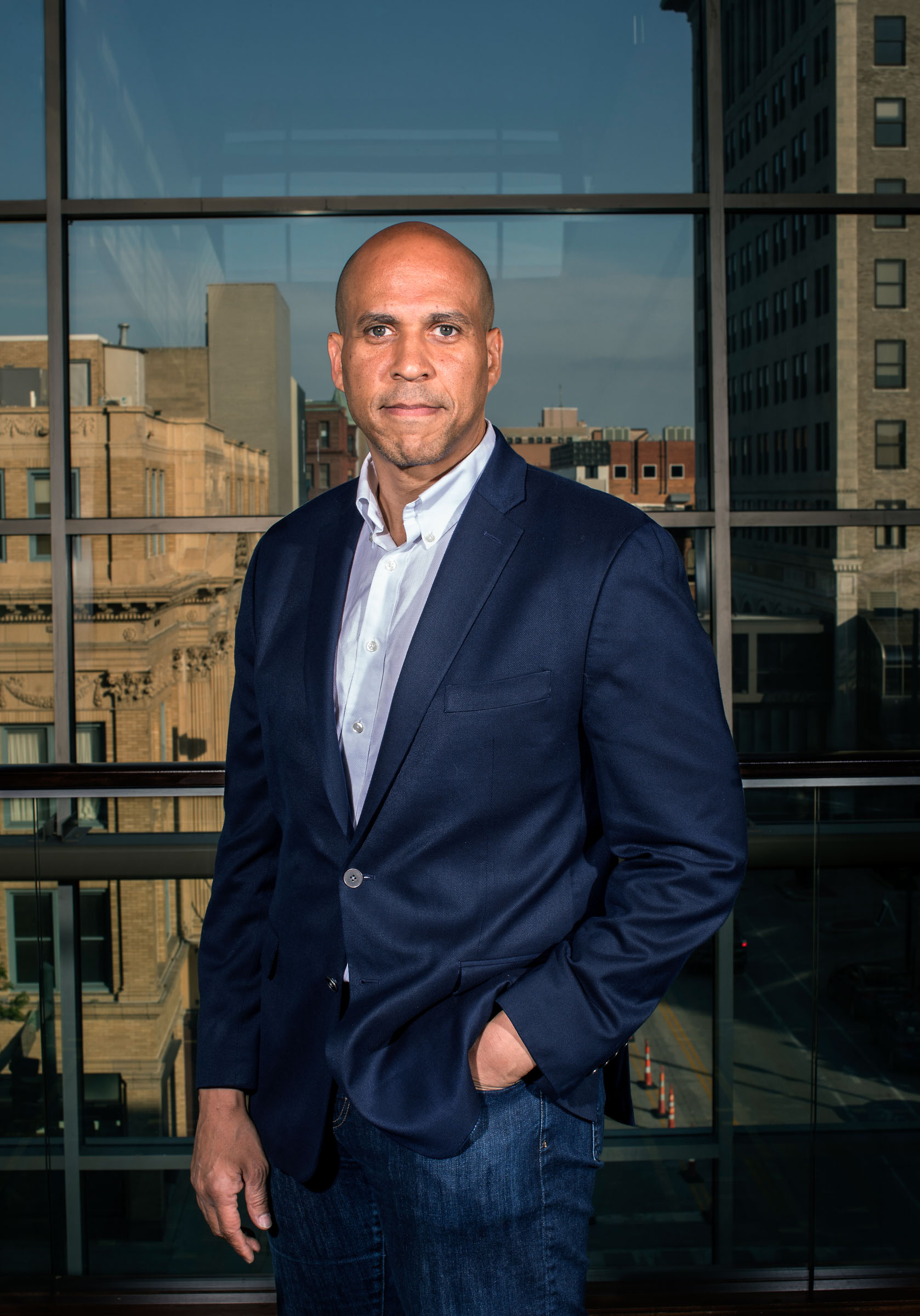On the wall behind his Senate office desk, Cory Booker keeps a map of Newark, N.J.’s Central Ward, where he moved fresh out of Yale Law School in the late ‘90s, and where he still lives. The median household income in Booker’s neighborhood is $19,500, and the map, he says, serves as a reminder of an admonition from a local tenant leader, Virginia Jones, who helped him first get elected to Newark’s city council in 1998: “Boy, don’t forget where you came from and who sent you.”
During Booker’s time on the city council, his two terms as mayor, and a decade in the Senate, he’s worked to bring investment to undercapitalized Black and brown neighborhoods like his. A major frustration for Booker has been seeing up close the real-life impacts of the racial wealth gap in the country—and policymakers’ inability to fix it. White Americans have six times the wealth per capita as Black Americans, and that gap has been steadily ticking wider every year since 1980.
Booker says he’s always looking for “big ideas” that can get bipartisan support to solve the racial wealth gap. He worked with Republican Senator Tim Scott of South Carolina to pass a 2017 bill creating tax incentives to invest in economically depressed “opportunity zones” around the country. More than $29 billion has been invested nationwide in housing, renewable-energy businesses, and other projects. Booker was one of the Senate Democrats who encouraged the Biden White House to include the child tax credit in the American Rescue Plan, a temporary, pandemic-era tax change that reduced child poverty by 43%. But that provision was allowed to expire at the end of 2021, and child poverty has jumped back to pre-pandemic levels.
Booker’s also helped bring attention to a long-standing idea put forward by economists on the right and the left to give all Americans a savings account at birth. He and Representative Ayanna Pressley of Massachusetts have introduced a long-shot bill to give every child an account seeded with $1,000—nicknamed “baby bonds”—that the government would add to each year on a sliding scale for families earning less than $125,000 a year. Doing so is projected to narrow the Black-white racial wealth gap among young adults from 1 to 15.9, today’s rate, to 1 to 1.4. Under the plan, accounts for children living under the poverty level would be worth up to $46,215 when they turn 18.
Booker grew up in a New Jersey suburb 25 miles from Newark. His parents were groundbreaking Black executives at IBM. He went on to study at Stanford and was a Rhodes Scholar at Oxford. When he graduated from law school and was struggling with what to do next, his mom asked him, “What would you attempt to do if you knew you could not fail?” That’s when he decided to move to Newark’s Central Ward and see if he could have an impact in the community.
He found brilliant entrepreneurs and innovators who needed a chance to succeed. “Being in elite academic environments, being in wealthy suburbs, and being in Newark, I have come to the conclusion that genius is equally distributed in America,” Booker says. “There are as many geniuses born in Beverly Hills per capita as Newark per capita, but we do a terrible job of giving that genius the opportunity to flourish in communities like mine.”
That question from his mom—a challenge really—is etched on a metal bar that he keeps on his desk. Also on his desk are some talismans to bring him strength and ward off evil: a statue of Harriet Tubman, a James Baldwin doll, a figurine of the Hulk, and a sculpture of the Hindu deity Ganesha, the remover of obstacles. “We all need someone to remove obstacles,” he says.
- Donald Trump Is TIME's 2024 Person of the Year
- Why We Chose Trump as Person of the Year
- Is Intermittent Fasting Good or Bad for You?
- The 100 Must-Read Books of 2024
- The 20 Best Christmas TV Episodes
- Column: If Optimism Feels Ridiculous Now, Try Hope
- The Future of Climate Action Is Trade Policy
- Merle Bombardieri Is Helping People Make the Baby Decision
